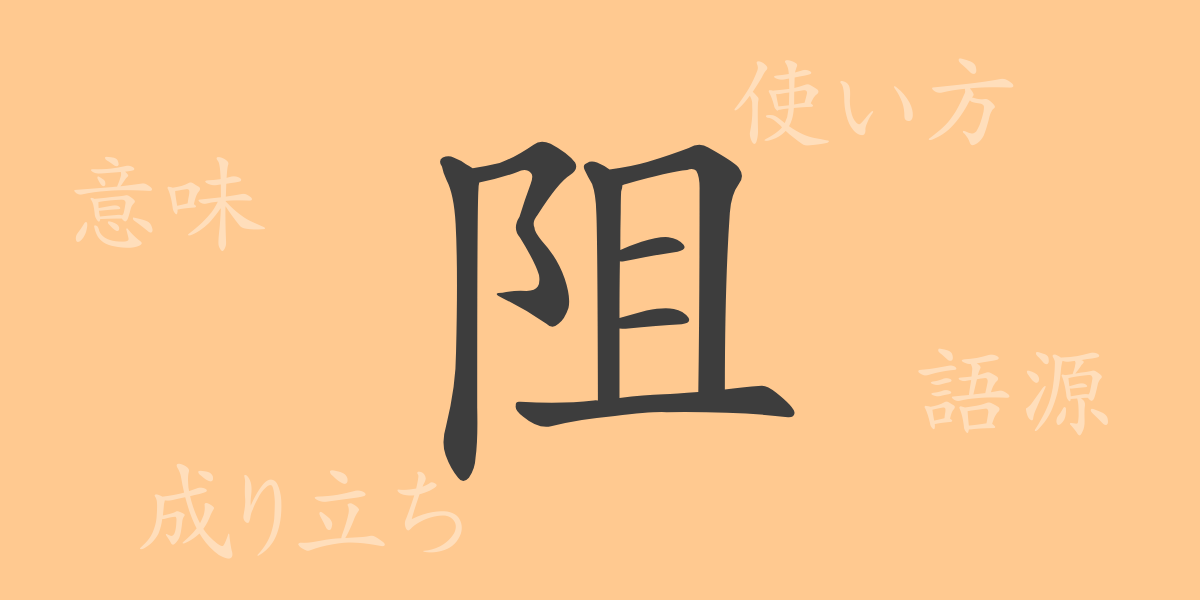Language shapes culture and weaves history, playing a crucial role in both. In Japanese, there are numerous Kanji characters with unique meanings, one of which is “阻” (ソ). This article delves into the profound meanings of “阻” (ソ), exploring its uses and origins. We will focus on “阻” (ソ) as a common Kanji in Japanese, unveiling its allure.
Origins of 阻 (ソ)
The Kanji “阻” (ソ) originated in ancient China. It is formed from the combination of “阜” (こざとへん), meaning a mound or hill, and “且” (シカ), meaning “furthermore” or “moreover”. These elements together convey the meaning of “blocking a path by a hill”, leading to interpretations such as “to prevent” or “to hinder”.
Meanings and Usage of 阻 (ソ)
“阻” (ソ) implies actions like “to hinder”, “to obstruct”, and “to stop”. It is used to describe situations where external obstacles or hindrances impact an activity. Common expressions include “impeding progress” or “inhibiting a plan”.
Readings, Stroke Count, and Radical of 阻 (ソ)
How is the character “阻” (ソ) treated in Japanese? Here are the details:
- Readings: The on’yomi (Sino-Japanese reading) is “ソ” (ソ), and the kun’yomi (native Japanese reading) is “はばむ” (ハバム).
- Stroke Count: It consists of 8 strokes.
- Radical: 阜 (こざとへん).
Phrases and Proverbs Including 阻 (ソ) and Their Meanings
What are some idioms, phrases, and proverbs that include “阻” (ソ)? Let’s look at a few examples:
- 阻止 (ソシ): To stop something. An act of impeding progress.
- 阻害 (ソガイ): To hinder the progress or development of something.
- 阻却 (ソキャク): To reject or dismiss an appeal or claim.
- 風雨を阻む (フウウヲソム): To advance despite the forces of nature.
Summary on 阻 (ソ)
The Kanji “阻” (ソ) is used to represent obstacles that impede progress or the act of doing so. Its depth of meaning reflects the richness of expression in Japanese, making it a versatile character used in various contexts. Understanding and properly using phrases and idioms that include “阻” (ソ) can enable more precise communication. Hopefully, this article has deepened your understanding of the meanings and charms of “阻” (ソ).

























